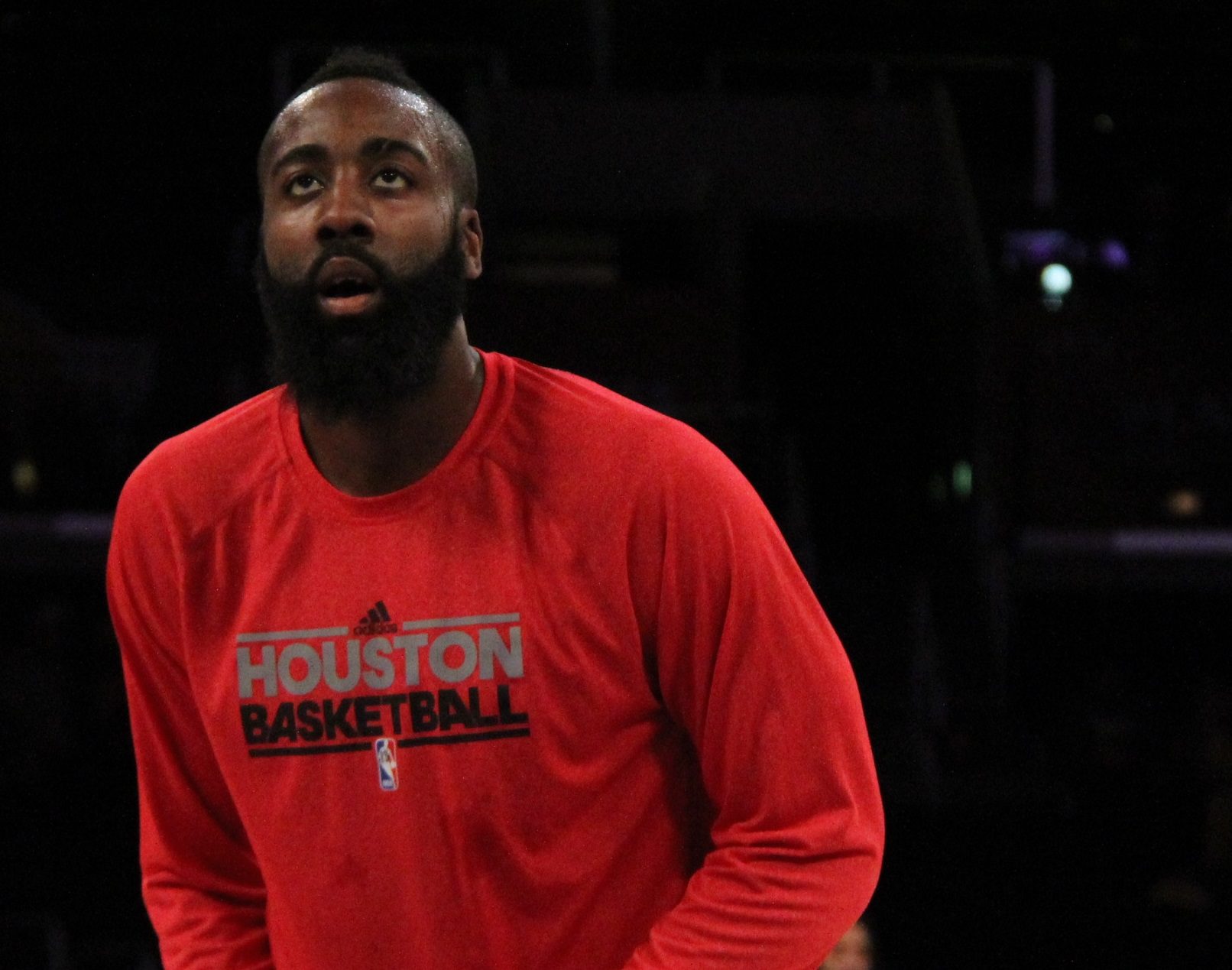You live and you die by the long ball.
The Houston Rockets missed 27 three-pointers in a row in Game 7 of the Western Conference Finals, allowing the Golden State Warriors a come-from-behind win and missing yet another chance at the NBA Finals.
Flashback to the 2015 Houston Astros, a team that earned its runs almost exclusively via the homer and saw it all go awry as strikeouts eventually got the best of them in the ALDS.
The same phenomenon can be perceived in two very different sports.
Houston shot more threes than twos throughout the regular season (42.3 triple attempts per game versus 41.9 two pointers). The Brooklyn Nets are second in the three-point shots rank, with a 35.7 to 51.1 ratio between threes and twos.
In fact, many other teams enthusiastically embraced this game plan and the league saw a slight but undeniable increase in attempted triples per game.
Steve Kerr’s Warriors, however, had already discovered the dangers of relying deeply on three-point shots. Just ask Stephen Curry about the final minutes of the 2016 Finals.
The Oakland team went against the league grain and reduced their triple totals from 32 attempts per game to less than 29, securing the best field goal percentage in the NBA this season (the Rockets finished at 15th in this category).
Eventually, better shot selection was the difference-maker between winners and losers in Monday night’s Game 7 in Houston.
The Rockets’ story bears some fatal resemblance to the 2015 Houston Astros, a team that was product of the equivalent trend in baseball.
Three years ago, the Astros were a young, up-and-coming squad that took pride in their home run totals and had no shame in their sky-high strikeout numbers.
Much like their NBA neighbours, the 2015 Astros fell short of the mark.
Houston had a 2-1 series lead over the Kansas City Royals – that season’s eventual World Series Champion – but when home runs became Ks and the Astros watched the ALDS slip away, manager AJ Hinch recognized it was time for a culture change.
They went from second-to-last in strikeout numbers in 2015 to the team with least amount of Ks by the 2017 season, when they were crowned World Series Champions.
Naturally, the addition of Justin Verlander in the trade deadline tied these adjustments together and paved the way for their first championship. But none of it would have been possible without plate discipline.
Like in basketball, the long-ball tendency represents a generational phenomenon. Last year, a new league home run record was set weeks before the regular season was over.
Adversely, there’s a high price to be paid.
This season, for the first time in the history of baseball, teams had more strikeouts than hits over the course of a month. There were 6,360 hits against 6,656 strikeouts throughout April, according to Elias Sports Bureau.
The art of manufacturing runs through ground balls and stolen bases is gradually losing space in baseball, just as jump shots and physical drives to the basket are seen less and less as the basketball seasons progress.
The NBA and MLB currently find themselves trapped in a hit-or-miss mentality. Although this approach generates highlights and can win games, success might promptly turn into low field goal percentage or batting average.
Coming into next season, the Houston Rockets could benefit from picking up a page in the Astros’ book. No matter the sport, the long-ball gamble can only take teams so far.
It’s time to get back to basics.

